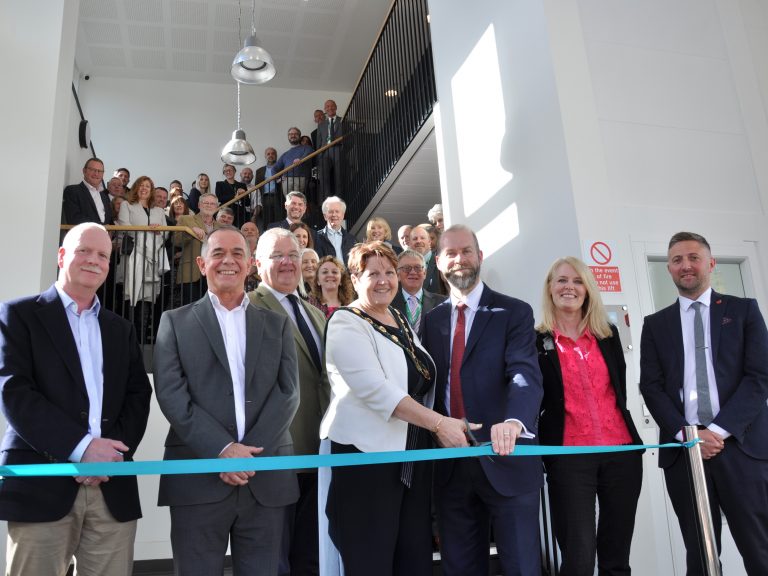Sweetening the deal: Cookies for Heroes
British Gypsum supports inmate rehabilitation with donation to Willmott Dixon programme at HMP Lincoln
The programme, aimed at imparting drylining skills to inmates, not only equips them with valuable trade skills but also paves the way for successful reintegration into society.
In an ongoing commitment to uplifting local communities, British Gypsum has donated essential materials for the Willmott Dixon initiative at HMP Lincoln. The donation includes British Gypsum Plasterboard, timber sole plates, various screws, studs, and fixing straps, all of which are integral to the drylining training program. The Drylining Academy is instrumental in providing inmates with a unique opportunity for personal growth and skill development. By participating in the drylining training program, inmates not only gain a valuable trade skill but also earn qualifications that significantly enhance their employability upon release. “The donation to the Drylining Academy exemplifies our shared commitment to community well-being and sustainable rehabilitation,” said Sam Blacknell, head of skills partnership at British Gypsum. “We are honoured to contribute to a programme that empowers inmates with skills and knowledge, offering them a chance to rebuild their lives and embark on a new path of success and independence.” The Willmott Dixon drylining training programme aligns seamlessly with HMP Lincoln’s mission to promote inmate rehabilitation and reintegration. With the unique ability to provide inmates with training, testing, and CSCS card certification within the facility, HMP Lincoln is a pioneer in preparing inmates for a smooth transition back into society and offering them a specialised skill set that opens doors to various employment opportunities. Shelley Williamson, social value manager at Willmott Dixon, said: “We are deeply committed to driving sustainable change through our initiatives. The partnership with British Gypsum is a testament to our shared dedication to social impact and redefining the lives of individuals within our communities.”Management buyout completed at Burton tiling and flooring company
Walther Strong expands to Grantham industrial estate
New business hub opens in Worksop
Construction of new forest school begins at Coalville site
Food processing company fined £20,000 after worker suffers serious injuries
Pride Leisure in Derby sold for £8.4m
Agency’s birthday celebrations set to go with a bang
Derbyshire specialist aggregate manufacturer makes acquisition
Sam Buckley, Managing Director, Derbyshire Specialist Aggregates, said: “This acquisition is the perfect next step in our commitment to offer only the highest quality resin and aggregate to the UK resin bound market. We are delighted to supply the superb products previously supplied by Geveko to customers who will continue to receive BBA approved products as normal.”
Martin Poulter, CEO and founder of Derbyshire Specialist Aggregates, said: “As the manufacturer of DALTEX, the UK’s no 1 brand in resin bound, we are delighted to announce this significant strategic acquisition which is a huge development in our plans for future growth in the UK and international resin bound market.”
André Thomsen, CEO, Geveko Markings Group, said: “After a thorough strategic review, we concluded that the decorative resin surfacing market is not a strategic area for our business. The transition of our devoted team and good customers to Derbyshire Aggregates embodies a promising chapter for all involved.”
The new site will add to Derbyshire Specialist Aggregates’ seven current sites across the UK including its Head Office and main production facility in Derbyshire, Daltex Central Hub in Ashbourne, DALTEX Trade Centres in Brighouse and Bridgend as well as a slate plant in Bangor, North Wales. These are supported by two large dock facilities in Mersey Wharf and Goole.












